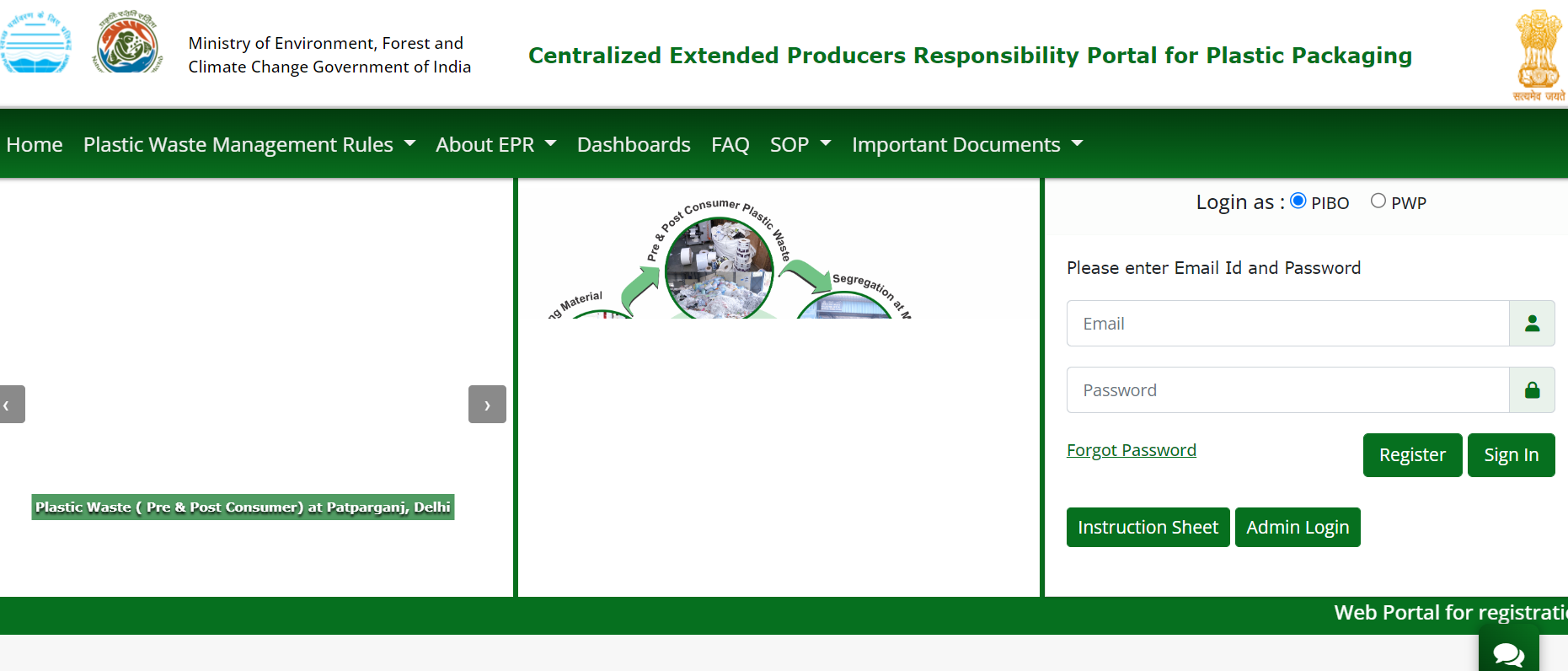
Extended Producer Responsibility
In India, Extended Producers Responsibility was only introduced in 2016 in the Plastic Waste Management Rules, 2016.
Amended guidelines came into force since 1 July 2022 and stated that primary responsibility for collection of used multi-layered plastic sachet or pouches or packaging is of Producers, Importers and Brand Owners (PIBOs) who introduce the products in the market.
The guidelines also detailed that the same PIBOs are expected to establish a system that collects back all the plastic waste generated due to their products.
To ensure compliance, this plan of collection is to be submitted to the State Pollution Control Boards while applying for Consent to Establish or Operate or Renewal.
Additionally, the Brand Owners whose consent has been renewed before the notification of these rules shall submit a new plan adhering to the amended guidelines within one year from the date of notification (16 February 2022) and implement with two years thereafter.
Besides the mandated onus of collection on Producers, Importers and Brand Owners, other amendments regarding reuse and recycling of plastic packaging have been introduced.
The new rules classify plastics into four categories- category 1 will include rigid plastic packaging; category 2 will include flexible plastic packaging of single layer or multilayer (more than one layer with different types of plastic), plastic sheets and covers made of plastic sheet, carry bags, plastic sachet or pouches. Multi-layered plastic packaging (at least one layer of plastic and at least one layer of material other than plastic) will come under category 3 and plastic sheet or the likes used for packaging as well as carry bags made of compostable plastics fall under category 4.
This classification will provide clarity in identification and management of different types of plastic packaging differently.
Post six months from the date of final publication of the amended rules in the Official Gazette, manufacture or use any plastic or multilayered packaging for packaging of commodities without registration from the concerned State Pollution Control Board or the Pollution Control Committees was prohibited.
To further encourage a circular model, the guidelines also allow for the sale and purchase of surplus extended producer responsibility certificates, thus setting up a market mechanism for plastic waste reclamation and management.
Furthermore, the unfulfilled EPR obligations for a particular year will be carried forward to the next year for a period of three years.
CHALLENGES
There are many challenges faced in the Indian market and economy, especially regarding compliances. These range from lack of handling capacity to illegitimate facilities in the forms of multiple accounting of waste, selling to aggregators and leakages.
EXAMPLE OF IMPLEMENTATION
Hyatt Regency Delhi has launched its in-house water bottling plant. The fully automated water bottling plant aims to end the use of approximately 1.08 million plastic bottles a year, by switching to reusable glass bottles [1].
ONLINE PLATFORM FOR EPR
The CPCB (Central Pollution Control Board) has set up a customized online platform called the “Centralized Extended Producers Responsibility Portal for Plastic Packaging“ which will act as digital backbone of the system and aid implementation.
This online platform aims to allow tracking and monitoring of EPR obligation and thus reduce the compliance burden for companies through online registration and filing of annual returns.
In order to ensure monitoring on fulfilment of EPR obligations, the guidelines have also prescribed a system of verification and audit of enterprises.
INTRODUCTION OF PLASTIC CREDIT MODEL
Following the polluter pays principle, there is the provision of a framework that levies a sort of environmental compensation in case of non-fulfillment of EPR targets by PIBOs. The funds collected shall be utilized for collection, recycling and end of life disposal of uncollected plastic waste in an environmentally sound manner.
To learn more about Plastic credit, read the next blog!
[1] "Hospitality Biz India :: Hyatt Regency Delhi Eliminates Plastic Bottles, Announces In-House Water Bottling Plant". Hospitalitybizindia.Com, 2019, http://www.hospitalitybizindia.com/detailNews.aspx?aid=33106&sid=1.




